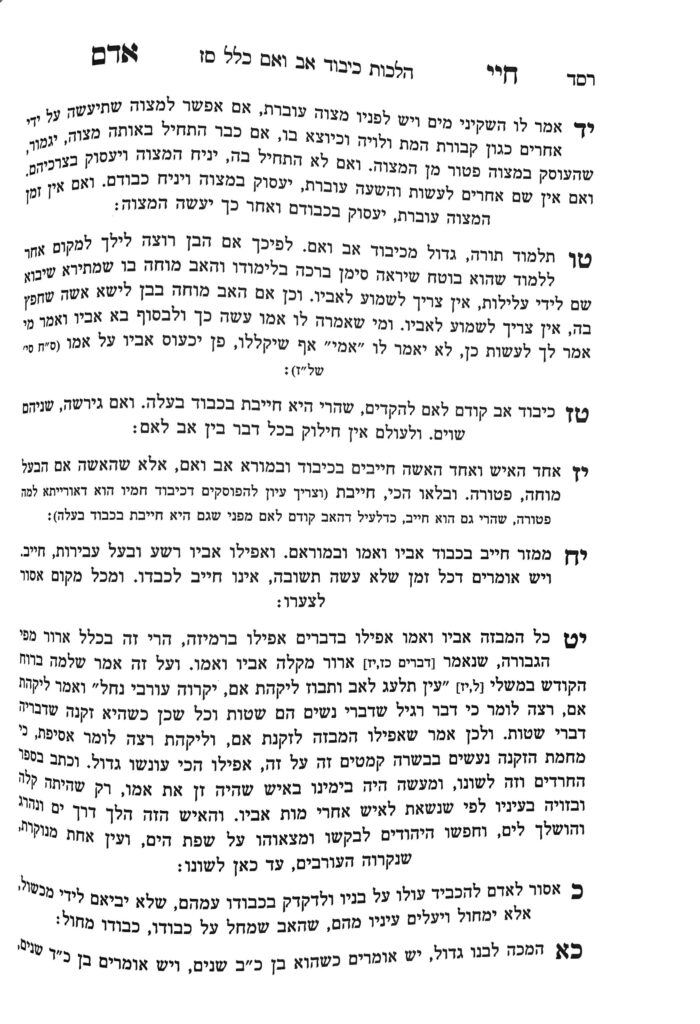We are continuing in siman 17, which discusses a married woman’s chiyuv of kibud av v’eim. We learned that a married woman is exempt from kibud av v’eim if the responsibilities to her husband preclude her from being able to perform kibud. However, she will still be chayav in morah.
In light of a married woman’s complete exemption from kibud, the poskim discuss a single mother, either due to divorce or death, taking care of young children. The fact that she has young children alone does not relieve her from the chiyuv of kibud av v’eim, as opposed to if she were married, where her responsibilities towards her husband inherently serve as a complete petur from the mitzvah. The regular concept of oseik bamitzvah patur min hamitzvah will apply to her, as a result of her responsibilities to her children, and will apply as we have learned previously (shiur 1243). However, it only applies as a result of being oseik b’mitzvah–as opposed to a married woman, who is inherently patur–so there may be times or situations where she is not oseik with her children, and may then be chayav to perform kibud av v’eim.
In siman 18, the Chayei Adam discusses giving kavod to a parent who is a rasha, which the Chayei Adam defines as someone who does not follow halacha properly. The Chayei Adam is specifically discussing parents who know the halacha, but choose not to follow it due to lusts or whims. He is not discussing parents who do not follow halacha as a way to spite Hashem (we will discuss such parents below). We will discuss the parents of baalei teshuva separately.
There is a machlokes whether a person has a chiyuv kibud av v’eim to parents who are reshaim (defined here as parents who know the halacha but choose to ignore it). The Rambam writes that a mamzer has a chiyuv kibud av v’eim, even though his parents are clearly reshaim. The Shulchan Aruch follows the opinion of the Rambam, and this is the accepted psak for Sephardim.
If a person is a mumar lehachis, where they intentionally transgress aveiros to demonstrate they do not care about Hashem, even the Rambam agrees there is no chiyuv kibud av v’eim.
The Chayei Adam continues, and writes that the Rema is of the opinion that a child has no chiyuv kibud av v’eim to parents who are reshaim until the parents do teshuva. Even the Rema agrees that although there is no mitzvah of kibud, there is still a chiyuv morah, so the child would not be allowed to strike, disrespect or otherwise cause the parent tzaar.
Many irreligious parents experience tzaar from their children becoming frum, so, be’ezras Hasehm we will define tzaar in the upcoming shiur.
Summary
- Although a married woman is inherently patur from kibud av v’eim, a single mother is not, but the concept of oseik bamitzvah patur min hamitzvah will apply to her.
- The opinion of the Sephardim is that a child is chayav to give kavod to parents who are reshaim, unless they are considered a mumar lehachis.
- The opinion of the Rema is that there is no chiyuv kavod until the parents do teshuva. However, there is still a chiyuv morah.



